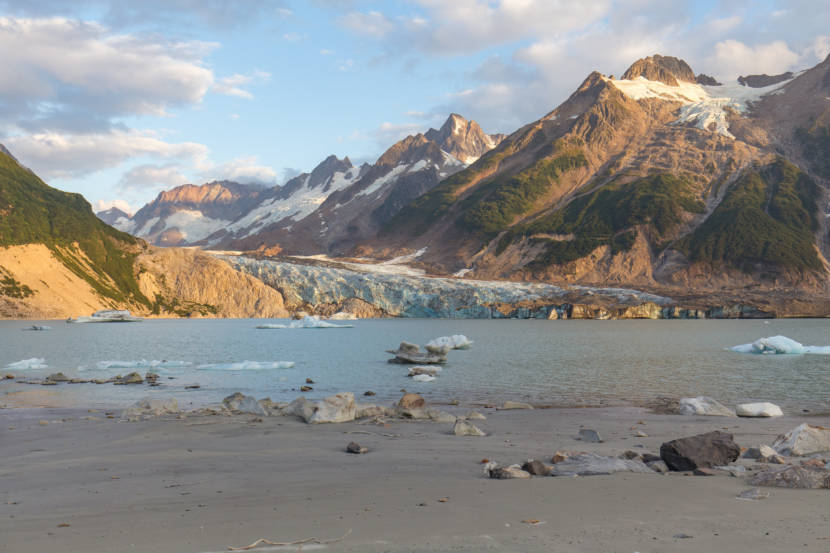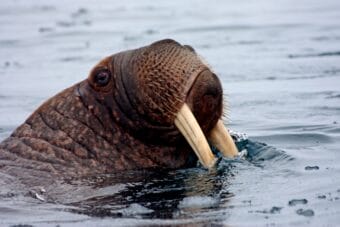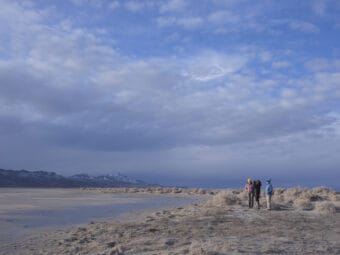
New research indicates that the Alsek River will change course dramatically over the next few decades. Geologists with the National Park Service predict that glacial retreat related to climate change may move the mouth of the river 20 miles away from its current location. This could pose challenges for raft trips and fishing in Glacier Bay National Park.
The Alsek River originates in the Yukon Territory and flows hundreds of miles south before emptying into the Pacific Ocean at Glacier Bay National Park. Near the end of its journey, the river widens into Alsek Lake. It’s currently separated from the Grand Plateau Lake by a glacier.
But when that glacier melts enough, the lakes will combine and eventually drain into the ocean down a steep embankment.
Michael Loso is a Park Service geologist who researches the Alsek changing course.
“Presently, the Alsek River can’t get there because this glacier, you know, this big pile of ice is in the way,” Loso said. “But really, the thrust of our paper is to make the case that once that glacier ice completely goes away, by a combination of melting and calving into the two lakes, you would be able to paddle your raft right on over to Grand Plateau Lake because the two lakes would be combined.”
For centuries, the Alsek has been used for fishing and hunting. It was an access corridor to the interior for Indigenous people living at the mouth of the river.
Now, the Alsek is a world-renowned rafting destination. Haines Rafting Company owner Andy Hedden has guided trips down it for years. He said the latest research confirms what many who are familiar with the area had expected.
“Anybody who’s done the trip with any regularity has watched this glacier trough, growing shorter and shorter, and these two lakes growing closer and closer together,” Hedden said. “So it’s pretty apparent the direction that it’s going. To me, it was really exciting to see the level of in-depth science and it was just rewarding to know that somebody out there is noticing it and paying attention.”
There are still some uncertainties about how the glacial melt will affect the current of the river, but Hedden said if Loso’s predictions are correct, it could pose some challenges for future rafting trips.
“If it adds 17 miles of flat water rafting across a long stretch of lake and still water, that adds some big challenges that might not be possible. It could take days and if there’s any wind it could be impossible to move. So there’s definitely some unknowns,” Hedden said.
The change in course could also pose problems for fishermen who set nets for salmon at the mouth of the Alsek, known as Dry Bay.
Glacier Bay National Park Superintendent Philip Hooge said if the river moves, commercial fishermen will not be able to get permits to fish at the location of the new mouth. That’s if the salmon still return to the area.
“Now, it would be very unclear whether there would even be the opportunity for salmon harvest,” Hooge said. “The river would be substantially changed in its nature, quite a ways up. It might develop into a to a robust fishery or it might not.”
Glaciers have changed northern landscapes for much of the earth’s history. That’s not new, and Loso said the dynamic geology of Alaska is what fascinates him about the state.
But the climate change implications of this latest study are worrying for Loso. He said it’s striking to see such significant changes happening so rapidly.
“The glacial change that I’m studying is a painful reminder of some pretty big problems that we need to address. So that is concerning to me,” Loso said.
In Glacier Bay, they will just have to let this river run its course.



